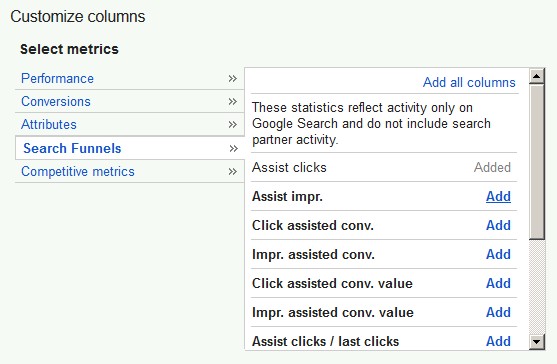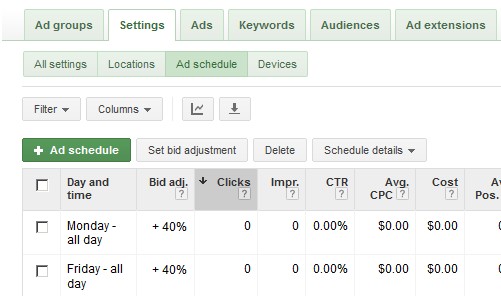3 Paid Search Tips For A Successful Holiday Season
With Black Friday and Cyber Monday around the corner, it is high time search marketers got their paid search program ready to scale up efficiently. Here are three tips you might want to consider in order to get the most from the holidays in paid search. 1. Analyze Top Holiday Search Queries & Build Seasonal […]
With Black Friday and Cyber Monday around the corner, it is high time search marketers got their paid search program ready to scale up efficiently. Here are three tips you might want to consider in order to get the most from the holidays in paid search.

1. Analyze Top Holiday Search Queries & Build Seasonal Campaigns
The first piece of the puzzle for a successful holiday-season strategy is to first focus on the editorial strategy. Here are a couple of thoughts:
- In AdWords, you can begin with a search query report from 2012 and identify those top queries around Black Friday/Cyber Monday which are not already in exact-match type in your account. You can use a filter to filter out exact-match type from a search query report.
- Build out specific holiday campaigns so you can assign specific budgets to those seasonal keywords.
- Build separate campaigns or ad groups for Black Friday, Cyber Monday, Christmas, etc., to easily enable/disable those.
- Focus on exact- and phrase-match types — you might want to stay away from broad-match type entirely for those generic holiday keywords for greater control.
- Exclude those holiday queries which are too generic, such as “Black Friday deals” and so on.
- Use holiday sitelinks with a specific holiday landing page to increase conversion rate.
2. Analyze Ad Performance & Rotate Holiday Ads
Besides those specific holiday campaigns, you also want to rotate holiday ads across the entire account. Also, with enhanced campaigns now targeting all devices, you should definitely leverage those new mobile-preferred ads to get the most of those mobile clicks during the holiday season. In a nutshell:
- In AdWords, review ad performance in 2012 and identify those performing holiday headlines, descriptions and display URLs, especially for your top-cost keywords.
- Looking at more recent data (last 30 days or so), identify current champion desktop and mobile ads for each individual ad group.
- Write two holiday desktop ads, and one mobile-preferred ad so roughly 66% of all desktop impressions are holiday-oriented, and 50% on mobile devices as long as your ads are set to rotate evenly in AdWords. Those percentages are kind of arbitrary — it really depends on how much time you have. However, you do want to keep a generic/non-holiday ad to preserve the Quality Score and avoid any down time when uploading your holiday ads.

- For your top keywords, you should take the time to come up with very specific holiday ad copies. For the rest of the account though, you can simply keep the champion headline, and use a holiday description and display URL — this is a systematic thus scalable way of going about it. From my experience, generic holiday ads with holiday headlines don’t perform as well as holiday ads with “regular” headlines.

- Why not update your PLA ad copies and give them a slight holiday twist?
3. Analyze Historical Keyword Data & Adjust The Bidding Strategy
Now that we have built seasonal campaigns and holiday ads across the board, we can fine-tune the bidding strategy and go through the following steps:
-
First, identify those top-revenue & assisting keywords from last year. In AdWords , you can add some columns such as “Assist Clicks” from the “Search Funnels” section:

For those keywords, you want to make sure the bids remain greater than the estimated first-page bids, or even the estimated top-page bids if those are not unreasonably high.
- The holiday season is also a good time to take a look at a recent paid vs. organic report in order to potentially expand your keyword list, and also bid up on those relevant keywords where your organic positions are poor. That will help improve the overall visibility and click volume.

Paid vs. Organic
- Day-parting remains an elegant way to go about massively bidding up or down during those peak days. In the campaign and ad group level settings, you can create custom ad schedule time periods and bid up or down during those times — for instance +40% all day on Friday and Monday. You’ll have to revert back to normal after Thanksgiving weekend.

Day Parting
- Speaking about bid modifiers, those location bid modifiers can be useful during the holiday season to improve visibility even further or cut the ad spend in certain locations. You might want to analyze geo performance in 2012, anticipate similar local behavior this year, and adjust your local bids accordingly. These modifiers can be set in Campaigns settings/Locations.
- Then there are obviously those mobile bid modifiers, which you might want to make higher early in the holiday season to improve awareness in general, especially if you have seen decent mobile performance in 2012.
Conclusion
There are plenty of ways to tweak your paid search program during the holiday season, such as those tweaks briefly just mentioned above, but also your campaign budgets, potentially location extensions, offer extension, etc.
From my experience, most of the success during that time of the year really comes from only three things: building out seasonal campaigns to best leverage those incremental search queries; rotating holiday ads closely derived from your champion ads; and using day-parting to massively scale up and down during short time periods.
(Modified Stock image via Shutterstock.com. Used under license.)
Contributing authors are invited to create content for MarTech and are chosen for their expertise and contribution to the search community. Our contributors work under the oversight of the editorial staff and contributions are checked for quality and relevance to our readers. MarTech is owned by Semrush. Contributor was not asked to make any direct or indirect mentions of Semrush. The opinions they express are their own.
Related stories